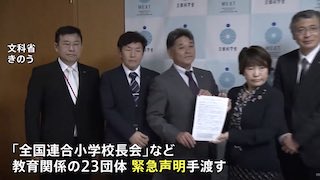Aug 18 (newsonjapan.com) - Education in Japan is specific and works on the principle of "quality study is a guarantee of a successful career." Every Japanese usually deserves only one attempt to take a worthy place in society. However, this system has its dark side as well.
Without the Right to Rest
Japanese schoolchildren and students are called one of the busiest and hardworking people in the country. Already in high school, they perform a huge number of home and test tasks and often wear computer screen glasses because most tasks are performed using technology. Vacation for the Japanese is a time when they are thoroughly busy studying. In the same way, the weekends pass - school children perform assignments and sometimes do not even have time to go out.
Exams begin with the seventh grade, take place two or three times a year, and they are one of the most serious difficulties in the life of every Japanese. There are both final checks that determine whether a person will go to the next class, school or higher education institution, and entrance tests. In addition to the school itself, there are special educational institutions of juku - tutoring offices that provide courses in different subjects.
Practically everyone visits juku and until the late evening, they are diligently engaged in order to improve their level. In Japan, on New Year's Eve, the most urgent gift for teenagers aged 12-18 is a coupon for attending courses.
In Japanese schools, there are also special classes called kai. After the end of school time, the student necessarily participates in any collective activity. But in the end, the child generally does not have free time: in the morning he goes to school, from there to Kai, then to juku. He comes home late at night and only has time to do the homework and go to bed.
Without the Right to Mistake
45% of the population of the country and 90% of urban residents receive higher education. These are quite impressive figures. To get to the university, the student must successfully pass first the school, then the entrance examination. There are no indulgences here: even if a person has graduated from high school, this does not relieve him from testing knowledge at the university. It's really hard to get to some universities, for example, the University of Tokyo or Keio University. Enrollment in the ranks of students is considered the achievement of all life and guarantees a highly paid job.
But What Is the Result?
The heavy weight of a single attempt and categorical hopes is an unbearable burden placed on the shoulders of a young man. Overloads and strict requirements in school, the fear of not justifying the aspirations of dear people, the non-stop race for success, and own high claims is a strain that not every adult is able to withstand. The fact that this is the reality is confirmed by impassive statistics: the number of depressions is directly related to the level of school performance. The dependence between teenage depressive disorders and the pressure of success is confirmed by the annual surge of youth suicides immediately after the announcement of the results of the entrance examinations in Japan. If a person does not gain access to the coveted university, he believes that his life is over. It's worth considering whether the price is not too high even for the brightest prospects.















